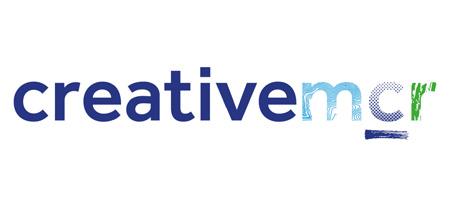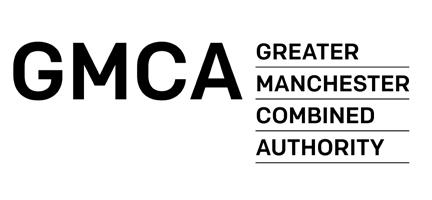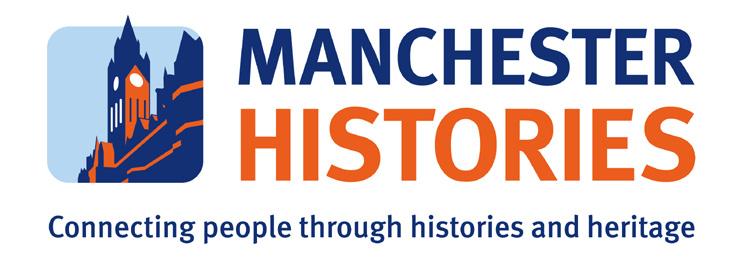
Business Plan
2025 - 2030
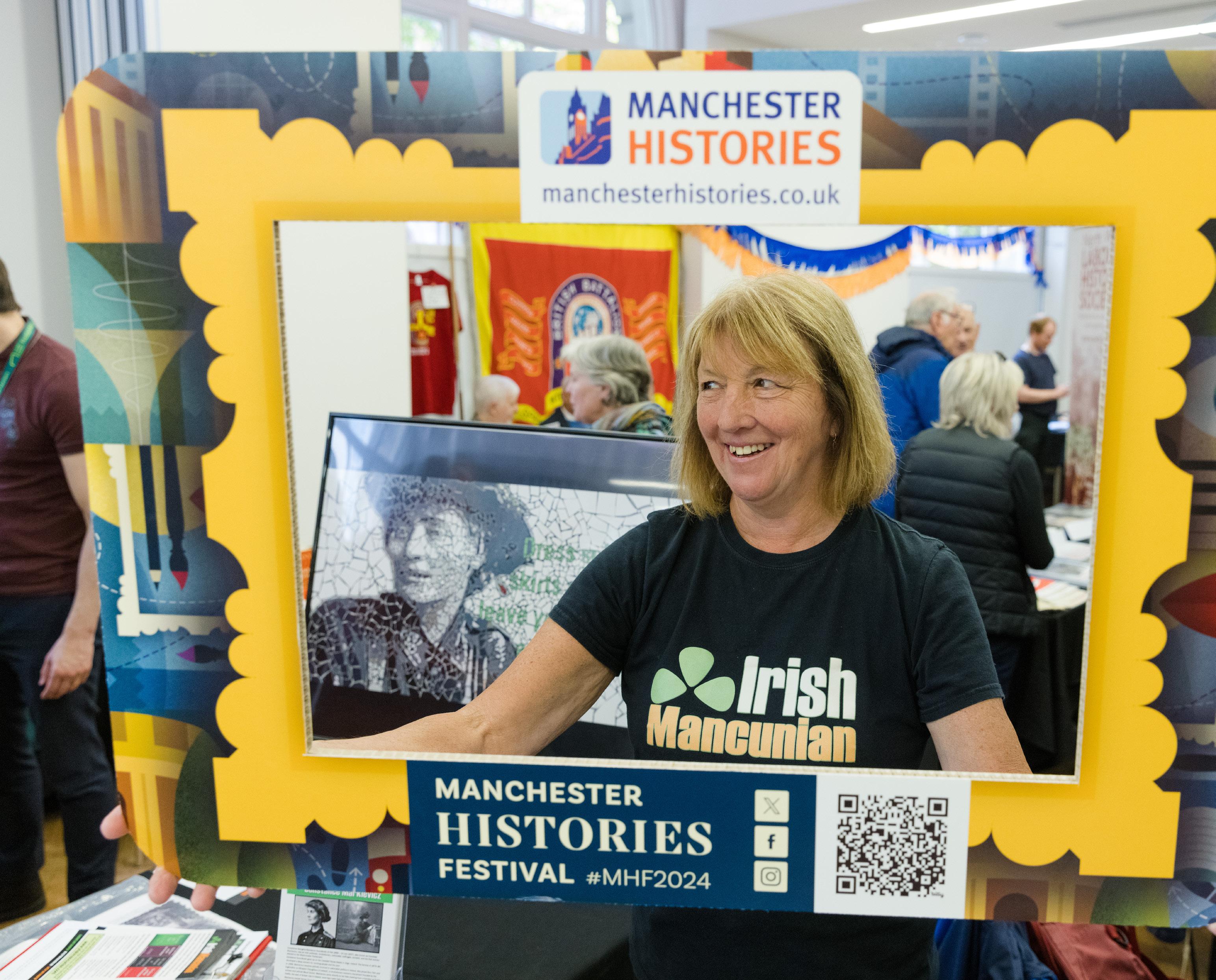


Business Plan
2025 - 2030

At Manchester Histories, we collaborate with communities, individuals, and organisations to uncover, celebrate, and preserve the rich histories and heritage of Greater Manchester and beyond. We are proud to introduce our Business Plan for 2025-2030 - a strategic roadmap that builds upon our achievements while outlining a bold and transformative vision for the future.
Guided by our core values of compassion, curiosity, and justice, this plan is a collective effort shaped by the voices of our staff, volunteers, trustees, and partners. It reaffirms our mission to connect people through histories and heritage, offering opportunities to explore the past and shape the future through storytelling and creative practice.
At the heart of our work is a steadfast commitment to equity, inclusion, and social justice. We believe that uncovering and amplifying diverse histories is critical to creating a fairer, more equal society. By highlighting stories that have been overlooked or underrepresented, we aim to challenge inequality, empower underrepresented voices, and contribute to positive change in our communities.
History matters. It does so because it connects us in profound and enriching ways. Manchester Histories plays a vital role in helping people explore their past within local communities. By empowering individuals to discover and celebrate these connections, Manchester Histories fosters a deeper understanding of our shared human experience.
This Business Plan outlines how Manchester Histories will:
Seize opportunities to expand our reach and deepen our impact.
Embrace innovation to create dynamic, inclusive programmes of activity. Strengthen partnerships to amplify our shared vision.
Enhance capacity and creative practice to deliver meaningful, transformational projects.
What makes us unique is our unwavering commitment to ensuring that histories and heritage are inclusive, accessible, and inspiring for everyone.
This work is made possible by the incredible dedication of our staff, funders, partners, artists, volunteers, and friends, to whom we extend our heartfelt gratitude.
If you share our passion for histories and heritage, we invite you to join us in our mission or to support our work. Together, we can shape a future where culture, histories and heritage are valued, celebrated, and shared by all.
info@manchesterhistories.co.uk www.manchesterhistories.co.uk
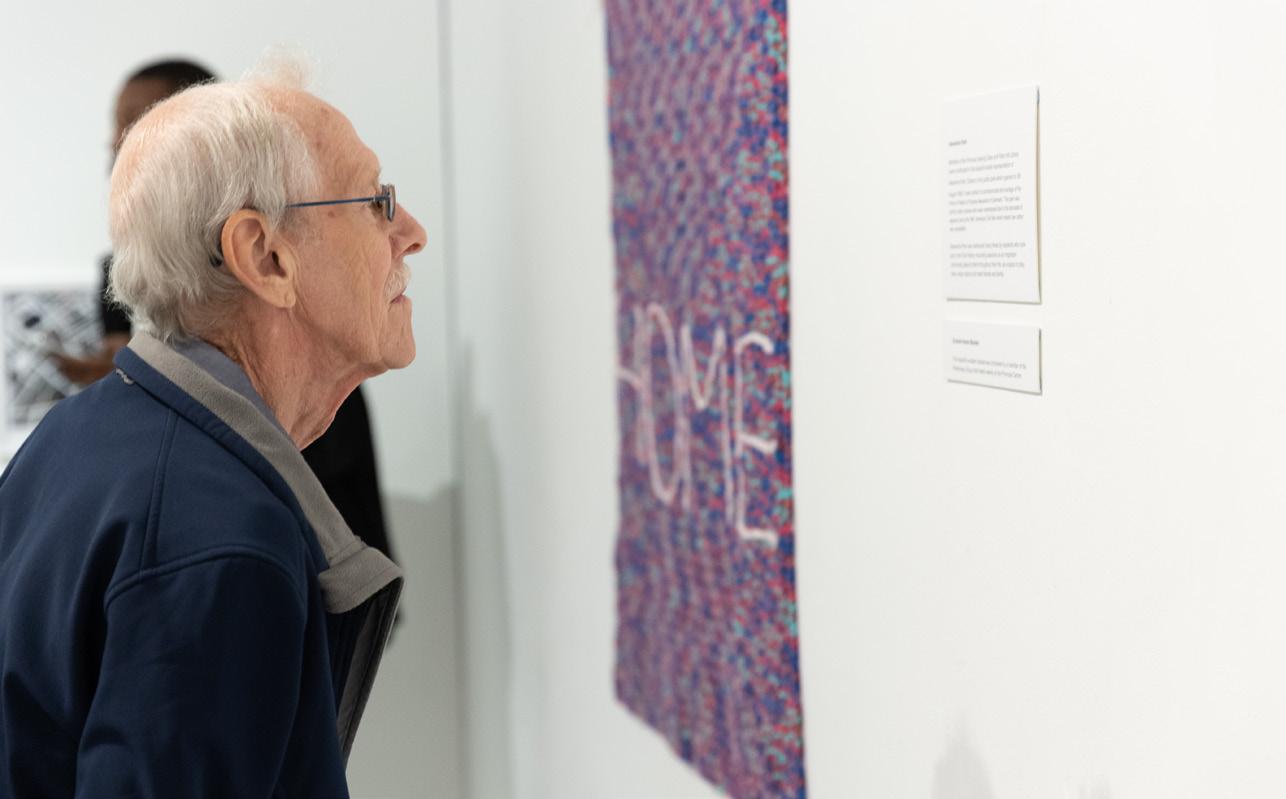
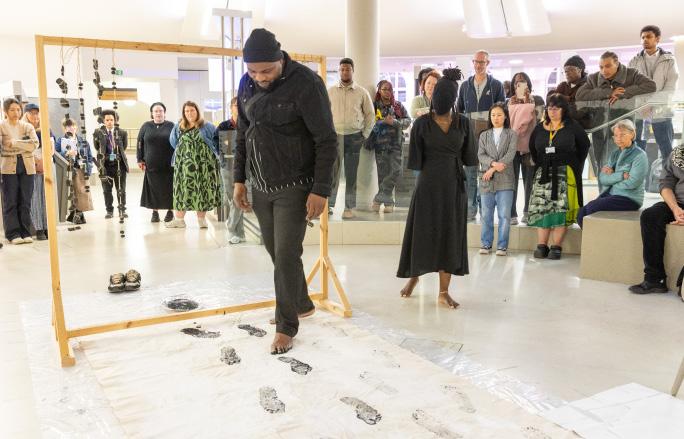

The following four aims will deliver Manchester Histories mission, vision and values:
people through histories and heritage
Manchester Histories will deliver innovative projects, events, and networks that connect people to Greater Manchester’s diverse histories and heritage, including:
The biennial Manchester Histories Festival 2026, 2028, 2030.
Manchester Histories Awards. Celebrating great work across the region.
Rocket: All Aboard. Marking the 200th anniversary of the world’s first inter-city railway, the Liverpool & Manchester Railway.
Queer Up North 1992-2002. Celebrating Manchester’s LGBTQ+ Heritage.
HiDDEN Network. To be recognised as a champion of hidden heritage, increasing the preservation and visibility of rare stories and collections in Greater Manchester.
This is Us. Exploring what is and what is not represented in public spaces in Manchester. Exploring complex histories and overlooked voices through digital storytelling.
Reaching audiences in new ways
Manchester Histories will use creative approaches to share stories, ensuring they are relevant, engaging, and accessible to diverse audiences, including via:
Manchester Histories Hub at Manchester Central Library.
A welcoming and inspirational space that has a focus on wellbeing and highlights lesser-known histories and heritage through exhibitions, performances, installations, workshops, and events.
Crafting Connections: Heritage for Wellbeing Toolkit. Training volunteers and distributing the toolkit to older people in health care and community settings across Greater Manchester and online.
Enhancing how we communicate and demonstrate the impact of our work.
Manchester Histories will strengthen its infrastructure, partnerships, and resources to ensure long-term sustainability and deliver its ambitious goals:
Supporting and developing our staff and volunteers through training such as Al and Carbon Literacy.
Expanding our team with new General Manager and Strategic Communications Manager roles.
Enhancing our digital capacity to improve internal efficiency and audience engagement.
Developing new strategic relationships with public and private sector partners.
Link and support Always, Everywhere: Manchester’s Cultural Ambition 2024-2034 and The Greater Manchester Strategy for Culture, Heritage and Creativity. CreateGM 2024-2029.
Manchester Histories will use the lessons of the past to build a better, more inclusive and sustainable future for local communities:
Creating a platform to celebrate hidden and contested histories of Manchester. The All of Us project will explore diverse narratives and complex legacies about who is and who is not represented in public spaces.
Rethinking digital projects with sustainability built into their design and legacy.
Undertaking ongoing Carbon Literacy training, reducing our environmental footprint.
Continue to be part of Greater Manchester Arts Sustainability Team to reduce the cultural sector’s environmental impact, address the climate crisis, and champion inclusive sustainability for all.
Our engagement with histories and heritage empowers people by recognising and valuing their stories.
We are an award-winning charity that works collaboratively to reveal, share and celebrate Greater Manchester’s diverse histories and heritage. We connect people to explore the past and shape the future through histories and heritage.
We are proud to celebrate the diversity, creativity, ingenuity and social principles of the people of the ten Greater Manchester districts and beyond. Our engagement with histories and heritage empowers people, both as creators and audiences, by recognising and valuing their stories.
We develop our work in partnership with communities, academics, volunteers, artists and organisations, so our work manifests itself in response to the people we work with and for. As a result, Manchester Histories creates work that is innovative, creative and different.
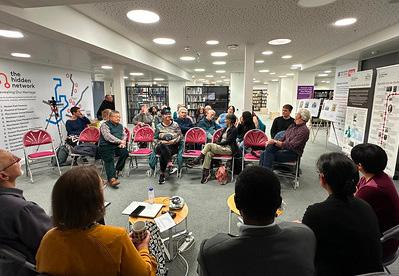


Manchester Histories has a track record of delivering high quality and well-received public engagement projects, examples include:
Since 2012, the Manchester Histories Festival has been a cornerstone of our work, drawing significant participation and fostering community connections across Greater Manchester and beyond. The festival celebrates and explores the region’s rich histories and heritage, often focusing on themes that matter to people and resonate with contemporary society.
More than just a celebration, the festival serves as a vital platform to uncover diverse histories, reflect on our shared heritage, and inspire hope and possibilities for the future. It emphasises the importance of understanding our past to appreciate the present and shape a better tomorrow.
In 2022, the festival explored the history of climate change, earning the Manchester City Council Culture Award for its contribution to raising awareness of the climate crisis. Through showcasing histories of the past, present, and future, the festival not only informed audiences about the issue but also empowered them to take meaningful action for change.
In 2024, Manchester Histories partnered with The University of Manchester and Manchester Metropolitan University to celebrate 200 years of history, learning, innovation, and research. The collaboration featured a spectacular opening night, including four newly commissioned works by artists and the launch of the International Storytelling Festival with Man Met. Additionally, the festival invited people and communities to engage through the ‘R Histories’ open call and the much-loved Histories & Heritage Marketplace, fostering participation and connection across Greater Manchester and beyond.

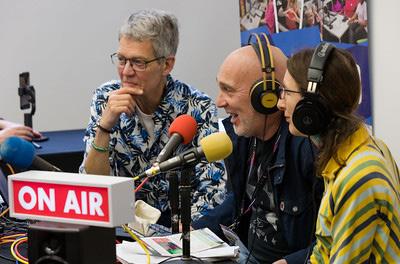

This creative history project celebrated community, home, and personal histories, showcasing an inspiring collection of artwork and oral histories from residents across Oldham. Developed in collaboration with communities from Crossley, Dew Way, Fitton Hill, and Primrose Bank, the project marked the 10th anniversary of Great Places Housing Group and Inspiral’s Gateways to Oldham regeneration initiative.
Between February and July 2023, early career artists worked alongside an oral historian to facilitate creative workshops, memory recording sessions, and drop-in activities. Highlights included a reunion of a 1990s youth group and a call for local artwork, poetry, and film. The results were featured in a three-month exhibition at Gallery Oldham and a 76-page book.
This project not only celebrated Oldham’s unique heritage but also fostered community connections, inspired creativity, and preserved personal stories for future generations.

This Arts and Humanities Research Council-funded project, part of the Towards a National Collection programme, aimed to make community-generated digital content (CGDC) more accessible and integrated into the national heritage narrative. Despite its cultural value and representation of diverse voices, CGDC often faces barriers to accessibility due to technological and organisational challenges. By partnering with UK heritage institutions, the project developed user-friendly tools and a public-facing platform at the National Archives to address these issues.
As part of the project, Manchester Histories facilitated consultations with community archive groups, gathering insights into their preservation and management practices. These consultations explored key areas such as collaboration, content organisation, accessibility, sustainability, and legal considerations. The findings highlighted both the challenges and successes of community-driven heritage work and informed actionable recommendations to enhance the impact of the initiative. By contributing to this project, Manchester Histories played an essential role in advocating for inclusive and sustainable approaches to preserving and celebrating shared heritage in an evert changing digital landscape.
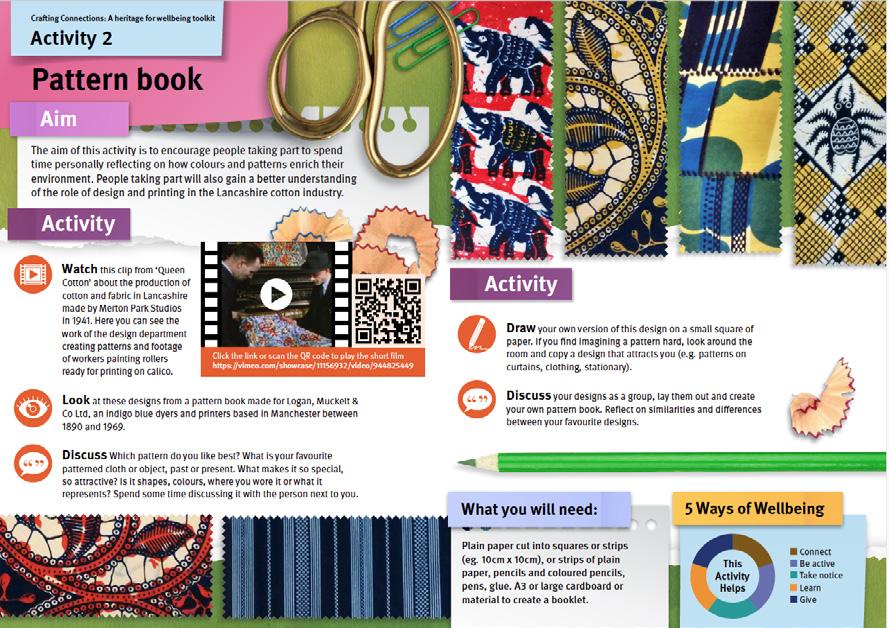
Developed in partnership with Manchester Histories, Creative Manchester at the University of Manchester, Archives, volunteers and community groups Crafting Connections exemplifies the power of collaboration in heritage and well-being. The project was funded by Manchester City Council and the Higher Education Innovation Fund and aligned with Greater Manchester’s Creative Health and Age-Friendly strategies, as well as global initiatives like WHO’s Decade of Healthy Aging.
The toolkit provides user-friendly resources to enhance health and well-being through heritage activities, using archival materials and creative methods to connect communities, reduce health inequalities, and inspire positive change. It showcases how heritage can contribute to broader social goals by fostering inclusion, accessibility, and sustainability.
These included the Hidden Histories, Hidden Historians project (2018), funded by the National Heritage Lottery, which uncovered and celebrated overlooked stories from the past.
In 2019, Manchester Histories successfully led the Peterloo 2019 programme, commemorating the 200th anniversary of the Peterloo Massacre. This ambitious initiative reached over one million people worldwide, underscoring Manchester Histories capability to deliver impactful large-scale programmes. Celebrating one of Manchester’s most significant historical events, the programme showcased the city’s radical traditions and engaged audiences in reflecting on the enduring legacy of public protest, democracy, and representation for all.


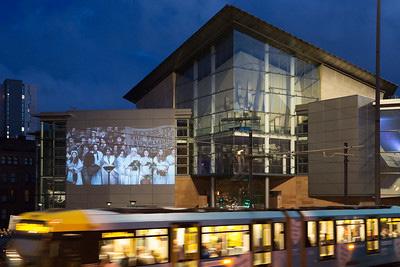

Manchester Histories has created a strong public engagement programme to enable people to tell their stories across Greater Manchester. Our commitment to equality and diversity in valuing histories and heritage was a founding principle that continues to be embedded in our organisational vision, mission and values.
Vision: What we are striving for
To explore and share Greater Manchester’s past to create a fairer future.
Mission: What we are here to do
Manchester Histories works collaboratively to reveal and celebrate the stories of the people and places of Greater Manchester. We connect people through histories and heritage to explore the past and shape the future, valuing all voices in the telling, preserving, and celebrating of our stories.
Values: What we believe in
Our values are inspired by the histories and heritage of Greater Manchester and beyond and the people who live and work in the North West region, who continually demonstrate their curiosity about the world, radical thought, compassion for others and commitment to social justice.
Manchester Histories values informed histories and heritage that reflect:
We value empathy and understanding for others, for ourselves and for the planet.
We value the creative power of wonder in how we experience the world and how we understand the past.
We value fairness as a motivator for action.
Our people share a passion for Greater Manchester’s histories and heritage and their commitment and talents enable our small organisation to make a big difference.
Our Chief Executive Officer manages Manchester Histories, supported by our small staff team and network of volunteers. Manchester Histories is governed by nine Trustees and supported by two Patrons.
Manchester Histories has a full suite of policies and procedures guiding our organisational practice according to our values.
Trustees review policies on an annual basis, and they are made more accessible to our staff and volunteers in handbooks. We train staff, volunteers and trustees in crucial policy areas such as safeguarding, equality, diversity and inclusion and health and safety. We support our staff, volunteers and trustees to participate in professional development opportunities.
CEO
Karen Shannon is responsible for the creative direction, vision, strategic planning, programming, marketing and income generation of Manchester Histories. Karen has over 30 years of experience delivering cultural projects with partners, professional artists, cultural organisations and communities. Karen joined Manchester Histories in 2017.
Hannah Barker is a historian of northern England whose research spans from the eighteenth century to the present day. She is Professor of British History at the University of Manchester and a Historical Advisor for the National Trust. Hannah is the Chair of Manchester Histories.
Adele Douglas serves as a Councillor for Manchester City Council, representing the Labour Party in the Piccadilly Ward. She is the Deputy Executive Member for Employment, Skills, and Leisure and holds the role of Lead Member for Mental Health, championing initiatives to support wellbeing across the city.
Ben Edwards is Reader in Heritage and Archaeology at Manchester Metropolitan University. He began his academic career as a landscape archaeologist, but since joining Manchester Met in 2010, he has focused increasingly on public history and heritage.
Catherine Fletcher is Professor of History at Manchester Metropolitan University. Prior to taking up her current post in 2020, she taught at the universities of Durham, Sheffield, and Swansea. Catherine is committed to bringing historical research to wider audiences and was selected as an Arts & Humanities Research Council/BBC Radio 3 New Generation Thinker in 2015.
Rob Higginson is a Commercial Leader with Laing O’Rourke in Manchester, bringing years of experience in commercial and financial management. He is a Fellow of the Royal Institution of Chartered Surveyors.
Kirsty Hutchinson is cochair of the Disability Staff Network at the University of Manchester and is passionate about disability equality. She also works as a volunteering and community engagement consultant for the Student Development & Community Engagement Division.
Jahmal Williams-Thomas is a journalist for ITV News Granada Reports, often covering cultural stories. Starting his career in the creative arts sector, he grew up in Moss Side and is a proud Mancunian with a passion for the city.
Charlie Wildman is a lecturer in modern British history at the University of Manchester, where she is the Assistant Director of Research Impact for the School of Arts, Languages and Cultures. Charlie has undertaken significant engagement work with heritage and community groups across the NorthWest.
John Williams is a consultant working with arts and heritage organisations. He is Chair of the Millennium Quarter in Manchester, a mentor for the Museums Association Diploma, a mentor for the Heritage Lottery Fund, and a heritage expert for the Institute of Fundraising.
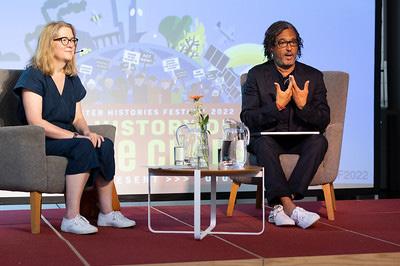
Micheal Wood is a historian, broadcaster and author. Michael was born in Manchester and is Professor of Public History at the University of Manchester. Michael was recently awarded the Historical Association’s Medlicott Medal for outstanding services to history and received the British Academy’s President’s Medal (2015) for outreach in history.
David Adetayo Olusoga
OBE is a British Nigerian historian, writer, broadcaster, presenter and film-maker.
David is Professor of Public History at the University of Manchester. David is an expert on military history, empire, race and slavery and has been described as “one of the UK’s foremost historians.”
Our General Manager (full time) supports operations, manages income generation, oversees operations, and deputises for the CEO.
Our Manchester Histories Festival Lead (planned, full-time) will oversee the delivery of the core festival programme.
Our Strategic Communications Manager (planned, full-time) will develop Manchester Histories’ profile, enhancing our visibility at all levels.
Our Community Producer (part-time) engages groups and communities at Manchester Histories Hub and recruits, trains and supports our volunteers.
Our Project & Community Development Managers (Queer Up North & Rocket: All Aboard) plan, coordinate and supports Manchester Histories’ programmes of activity and events for externally funded programme of work with our partners.
Our Cultural Administrator (full-time) is responsible for the administration and financial processes of Manchester Histories and supports the team and Trustees with social media, meetings and events.
Our Digital Development Officer (planned, parttime) will manage online infrastructure, supporting internal systems and external engagement.
Manchester Histories’ dedicated volunteers make a significant difference to our delivery capacity and organisational culture. We value their contribution to Manchester Histories, and we will continue to invest in their development and support.
We have thirty volunteers who give their time to Manchester Histories regularly. This can rise to over fifty volunteers during events, which is a significant number for a small charity.
Our volunteers are motivated by their passion for Greater Manchester’s histories and heritage, and they support every aspect of Manchester Histories, including:
• Researching and sharing Greater Manchester’s histories and heritage.
• Bringing histories to life by supporting events and projects.
• Reaching diverse audiences by providing marketing and public relations support.
• Making sure everything runs smoothly by providing administration and office support.
• Helping Manchester Histories to improve by supporting our evaluations.
We support our volunteers through training, mentoring and development opportunities, this includes volunteers:
• Gaining confidence
• Making a difference
• Meeting new people
• Feeling part of a community
• Learning new skills
• Taking on challenges
• Having fun

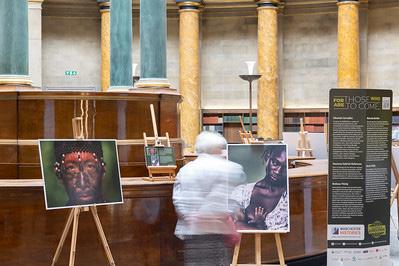
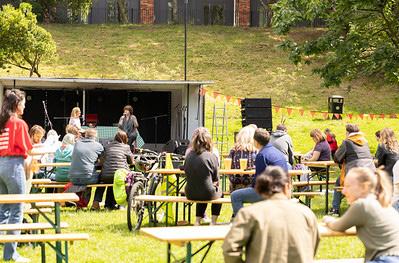
Collaboration is the foundation of Manchester Histories. Our positive and proactive approach enables our small team to deliver impactful projects that engage diverse communities. We build partnerships that benefit everyone involved, supporting our partners and their goals while advancing our own mission.
For example, we proudly support Always, Everywhere: Manchester’s Cultural Ambition 2024-2034, ensuring culture is inclusive and accessible for all. We focus on the Everything theme, emphasising culture’s relevance to everyday life and its power to reflect the people and issues that matter.
At the city region level, our work aligns with the Greater Manchester Strategy for Culture, Heritage, and Creativity 2024-2030, supporting its vision of making Greater Manchester a place of rich history, innovation, and creativity that inspires and drives positive change.
We have long-standing partnerships with the University of Manchester and Manchester Metropolitan University, which helped establish Manchester Histories. Collaborations with initiatives like Creative Manchester, the Centre for Public History and Heritage, and Manchester Poetry Library provide access to cutting-edge research, expertise, and resources that enhance our programming. These partnerships also connect university work with the wider community, fostering meaningful cultural public engagement and fulfilling universities’ social responsibility.
We offer students hands-on placements, giving them valuable experience in the cultural and heritage sector, contributing to impactful projects, and developing skills for future careers.
Our community and cultural networks are central to everything we do. The Rocket: All Aboard networks will enable us to co-create a programme shaped by the voices of participants, while the HiDDEN network and MADE, Manchester’s cultural education partnership, help us collaborate with smaller organisations and engage effectively with young people.
We are part of the Archives+ partnership, which promotes collaborative events and activities designed to engage new audiences and create opportunities to explore archives and collections. This partnership makes Manchester’s rich historical archives more accessible and widely used by the public, with a focus on the resources housed at Manchester Central Library.
Co-creation and collaboration are embedded in all aspects of Manchester Histories’ work, ensuring that our projects are shaped by the voices of the people we serve and enriched by meaningful partnerships that amplify our shared vision and impact.
Over the next five years, Manchester Histories is entering a period of growth and transformation. While there are a number of fundamental challenges to address, there are also many opportunities to build on our strengths and expand our impact.
Expanding our team is critical to Manchester Histories’ long-term success. The appointment of a new General Manager will free up the CEO to focus on building partnerships, exploring new funding opportunities, and amplifying our impact. Supporting this, the creation of a Strategic Communications Manager role will strengthen our voice beyond project-specific marketing, enhancing our ability to advocate for inclusive histories, highlight underrepresented narratives, and ensure our contributions are consistently recognised by partners, funders, and the public.
Over the past three years, Manchester Histories has delivered a range of impactful heritage projects. As we look ahead, sustaining this momentum will require careful alignment of resources, partnerships, and priorities. By freeing capacity for the CEO to spend time on strategic initiatives, Manchester Histories will be able to scope and secure core funding streams that complement projectbased funding, allowing us to plan for the future with confidence.
Manchester Histories’ unique position at the intersection of art, heritage, and community requires greater visibility. Advocacy for inclusive and equitable histories will remain central to our mission, ensuring the diverse voices of Greater Manchester and beyond are heard and celebrated.
We are committed to evolving our operational systems to meet growing demands. By making better use of digital tools, enhancing monitoring and evaluation practices, and streamlining workflows, we can improve both efficiency and impact.
As we expand our capacity, we will ensure that equity principles are embedded in recruitment, partnerships, and programme development. This includes prioritising underrepresented voices in decision-making and creating opportunities for diverse leadership within the organisation.
While challenges such as sustainable growth and capacity-building remain, Manchester Histories is uniquely positioned to tackle these by strengthening partnerships, harnessing technology, and expanding its innovative programming:
Leveraging technology to improve workflows and enhance engagement is a key focus for the years ahead. Generative AI is already streamlining our operations, enabling staff to focus on strategic priorities.
Following hands-on AI training in early 2024, we are embedding ethical AI practices to streamline operations and focus staff time on activities that further our mission. This approach ensures that Manchester Histories remains agile and future-facing. By continuing to train staff in the use of AI and other digital tools, Manchester Histories will create efficiencies, deliver projects more effectively, and reach broader audiences with greater impact.
We see AI as a valuable opportunity but recognise the ongoing discussions around intellectual property, data privacy, and environmental impact. As AI continues to evolve, we are committed to using it responsible - carefully considering its implications, mitigating risks like our digital footprint, and exploring ways to offset any impact. To ensure AI is used ethically and effectively, we are developing a best practice policy for Manchester Histories. Our focus is on ensuring AI supports innovation while upholding ethical best practices.
By expanding our focus to include corporate sponsorships, philanthropic giving, and potential National Portfolio Organisation (NPO) funding, Manchester Histories can strengthen its financial resilience. Exploring our relationships with trusts, foundations, and corporate partners will enable us to unlock new avenues of support for our core and project activities.
Partnerships remain at the heart of Manchester Histories’ work. Formalising and enhancing relationships with organisations such as University of Manchester, Manchester Metropolitan University, Manchester City Council, and Greater Manchester Combined Authority will provide greater alignment and shared value. Collaborations with community groups, cultural institutions, and corporate partners will further enhance our reach and impact.
The planned Manchester Histories Awards will provide an opportunity to celebrate local communities and individuals who champion heritage and histories across Greater Manchester. This biennial event, sponsorship-dependent, will provide local projects with the profile they deserve whilst also positioning Manchester Histories as a leader in recognising and supporting grassroots heritage initiatives.
Volunteers are central to Manchester Histories’ work, and expanding their roles presents an exciting opportunity to further support the organisation. By offering training and development opportunities to our volunteers, we can enhance their contribution while ensuring they feel valued as an integral part of our team.
We will actively seek partnerships with organisations and groups that represent and serve underrepresented communities, ensuring that our collaborations and partnership reflect the diversity of Greater Manchester and prioritise equitable outcomes.
Manchester Histories will continue to deliver unique events, projects and networks that connect people through histories and heritage, including:
Continuing to play a leading role in connecting communities, academics, university researchers, and the heritage & cultural sector and in supporting thriving histories and heritage networks across Greater Manchester.
The Manchester Festival 2026 will be a special celebration of community and civic pride, marking the reopening of the newly restored Manchester Town Hall at the heart of the festival. This important event will bring people together to celebrate the city’s history while also reflecting on its more complex and contested stories. The Town Hall, a symbol of Manchester’s rich and varied heritage, will host a variety of events that explore the city’s past, its triumphs, and challenges, encouraging open conversations about how history shapes our present and future. The festival will be a chance for everyone to come together, share ideas, and celebrate what makes Manchester unique. The themes for 2028 are not yet set but 2030 will align to celebrating the 200th anniversary of the Liverpool to Manchester railway.
Continuing to deliver our highly regarded histories and heritage public engagement activities.
Developing new histories and heritage events and projects that encourage Compassion, Curiosity and value Justice.
To celebrate the work of local community initiatives and the stories of people and place, we will launch a new biennial event: the Manchester Histories Awards. Held in alternate years to our core festival, the awards will highlight and showcase the communities and projects that are championing Greater Manchester’s heritage and histories.
We will explore delivery partnerships to establish a sustainable model for a celebratory awards dinner, focusing on identifying an experienced partner that can manage event logistics and provide support to us in securing event sponsors. Our priorities will be to ensure that award winners and nominees are recognised for their contributions, Manchester Histories’ impact and leadership in supporting local heritage is clearly demonstrated, and strategic partners are engaged to support the event and our wider work.

This project will celebrate the 200th anniversary of the Liverpool & Manchester Railway, the world’s first inter-city railway. This ambitious project will connect cities, towns, and villages along the route, exploring its impact on engineering, culture, built heritage, and diverse communities.
As the lead organisation, Manchester Histories will work with partners such as the Science & Industry Museum, National Museums Liverpool, local authorities, cultural organisations, artists and communities along the route to deliver cultural festivals, heritage improvements, and skills programmes, ensuring local communities are at the heart of the celebrations. We will also create a Community Rail Partnership along the route. Rocket 2030 will inspire diverse audiences and leave a lasting legacy for the North West region.
Manchester Histories will deliver Queer Up North 1992-2002: Celebrating Manchester’s LGBTQ+ Heritage, a project funded by £248,500 from The National Lottery Heritage Fund with additional support from The Granada Foundation. The project will celebrate the legacy of Queer Up North, a festival that played an important role in Manchester’s development as an inclusive and vibrant LGBTQ+ city.
Running from October 2024 to late 2026, the project will curate and digitise the festival’s archive, record oral histories from those involved, and deliver public events celebrating Manchester’s rich LGBTQ+ heritage. A new digital platform will ensure this legacy is accessible to communities, researchers, and audiences worldwide for years to come.

The Hidden Network consists of smaller Greater Manchester based museums that hold rare collections, such as the Jewish Museum, Pankhurst Centre, Elizabeth Gaskell House, Victoria Baths, Portico Library, Greater Manchester Police and Transport Museum and the Working Class Movement Library.
Manchester Histories will continue to support and promote Greater Manchester’s HiDDEN Network by serving as the accountable body and actively seeking opportunities to showcase its work. For instance, a new collaboration with the Royal Northern College of Music will support a North West Consortium Doctoral Training Partnership (CDA) project. This initiative will use innovative sound techniques to bring to life the stories of rare collections from the HiDDEN network.
Manchester Histories first delivered a programme of ‘Salon’ events in Spring 2021 in response to the covid epidemic and have continued to run them over the last three years. Built upon the principles of historic salons as spaces of shared interests, knowledge and amusement, they explored the history of topics people are passionate about, including:
Environmental Campaigning - History of Medicine - Migration and Communities - Roman & Medieval Manchester
These events continue to generate significant interest, and we plan to further develop this approach from 2025 onwards. This will include collaborating with The Centre for Public History & Heritage at Manchester Metropolitan University on initiatives such as the Sam Johnson Memorial Lecture.
Manchester Histories will use creative approaches to tell our stories, ensuring they are relevant, engaging, and accessible to new and diverse audiences. We believe that history is for everyone, and it is our job to ensure it is relevant to people’s lives.
In 2022, Manchester Histories opened a hub at Manchester Central Library to promote well-being by inviting people to explore local histories in a welcoming and accessible space. Through workshops, exhibitions, performances, and social gatherings, the hub creatively engages visitors with Greater Manchester’s stories and heritage. Volunteers play a key role in facilitating the space, receiving training and support to do so.
Located in the country’s most visited public library (2,022,641 visits in 2019/20), the hub increases Manchester Histories’ visibility while reaching those less likely to engage with history. It fosters well-being by connecting people, combating social isolation, and encouraging mutual understanding through shared histories - helping us reflect on the past while building a better future.
In 2024, we launched the Crafting Connections: Heritage for Wellbeing Toolkit, a resource designed to inspire creativity and improve health and wellbeing through local history and heritage. The toolkit offers step-by-step activities that provide simple and adaptable ways to engage older adults in exploring their own histories and those of Greater Manchester.
Developed in partnership with Creative Manchester and funded by Manchester City Council and The Higher Education Innovation Fund (HEIF), the toolkit leverages resources from our Archives+ collaboration, such as photographs, film, and audio recordings. These materials encourage participants to share stories, reflect on the past, and connect with others, supporting social interaction and reducing isolation.
The toolkit was co-created with heritage professionals, researchers, and volunteers and has been successfully piloted with groups across Greater Manchester. Combining creativity, storytelling, and history, it promotes a sense of belonging and provides a powerful way to support mental wellbeing in community and care settings.
Looking ahead, we will promote and facilitate toolkit sessions in libraries and care settings to ensure its ongoing use and impact. We will also develop new toolkits informed by participant feedback, such as resources designed specifically for young people outside of the school curriculum. These initiatives will help us further extend Manchester Histories’ reach and deepen engagement with diverse
Manchester Histories will strengthen its infrastructure, partnerships, and resources to deliver on its ambitious goals and ensure long-term sustainability.
Supporting and developing our people (staff, volunteers, trustees, supporters and partners) to continue to build the Manchester Histories family.
Staff training, development and welfare
Investing time into developing and enhancing strategic relationships with partners across the public and private sector.
Developing our internal digital capacity to work more efficiently, helping us focus more on activities that deliver our vision and mission.
Manchester Histories’ small team delivers high profile public engagement projects that reach large numbers of people and significantly impact the people who participate in them. We achieve a significant impact for a small organisation by working in partnership with others; however, we also recognise that our staff and volunteers work incredibly hard.
Over the next five years, Manchester Histories will support our people by:
• Continuing to be a supportive employer that promotes wellbeing.
• Further embedding Equity, Diversity, and Inclusion (EDI) principles into our organisational culture, ensuring our team reflects the diversity of the communities we serve.
• Developing trustees and patrons by inviting people to get involved.
• Growing our team by addressing our current skill/capacity gaps.
Manchester Histories needs to increase our staffing capacity if we are going to deliver the ambitious aims outlined in this Business Plan and support our staff and volunteers’ wellbeing.
The roles Manchester Histories will develop over the next five years are based on current gaps in capacity:
General Manager (full-time)
To support the delivery and management of income generation/ funding, demonstrate our impact, support operations, oversee the office and deputise for the CEO. This post will focus on operational delivery, releasing capacity so the CEO can focus on the strategic development of Manchester Histories. supporters and partners to continue to build the Manchester Histories family.
Strategic Communications Manager (full-time)
To continue to develop Manchester Histories’ profile in the region and beyond to reaching new audiences in new ways.
Digital Development Officer (part-time)
With responsibility for managing our online infrastructure, internally and externally.
Community Engagement Manager (part-time)
Supporting our work in the Manchester Histories Hub.
Manchester Histories Festival Lead (part-time)
To manage the core festival programme.
These roles will form part of the core team. For additional project work, we will employ Project Managers to manage specific projects. We are confident that Manchester Histories can successfully manage our staff team’s growth within our existing governance structure and planned management team. By increasing delivery support in new roles, we will create capacity for Manchester Histories’ CEO to spend more time on strategic development activities.
Manchester Histories’ commitment to creating a fairer society for all is evident throughout our work, mission, vision, values and aims, and it is part of our organisational culture. However, we understand that creating an inclusive culture is an ongoing process where you must continually remain open to growth and change. We will therefore continue our commitment to ongoing EDI training and development for all staff.
For Manchester Histories to continue to be successful, it is essential as the organisation grows that we invest more time into strategic development; capitalising on the organisation’s solid track record of delivery by ensuring its work is sustained for the long term.
The appointment of a new General Manager will free up capacity for the CEO, creating more time to develop relationships with potential partners, explore new funding opportunities (public and private) and ensure that Manchester Histories is recognised at the highest levels for its work in celebrating heritage and history. It will also allow the organisation to become more responsive as strategic opportunities present themselves.
That ongoing visibility of Manchester Histories contribution will be further supported by two new developments in the next five years:
The first will be the creation of a new Strategic Communications Manager role, providing a voice for Manchester Histories beyond project-specific marketing activities: though our track record in communicating projects to our core audiences has been exemplary, our approach to promoting our role and expertise has to date been muted.
The second, as outlined within Aim 1, will see the re-instigation of the Manchester Histories Awards; an event that will champion communities and individuals that celebrate local heritage and histories. In addition to placing a focus on Greater Manchester initiatives, the biennial event will provide Manchester Histories with a unique opportunity to develop and enhance our position supporting this work amongst strategic partners.
The first will be the creation of a new Strategic Communications Manager role, providing a voice for Manchester Histories beyond project-specific marketing activities: though our track record in communicating projects to our core audiences has been exemplary, our approach to promoting our role and expertise has to date been muted.
The second, as outlined within Aim 1, will see the re-instigation of the Manchester Histories Awards; an event that will champion communities and individuals that celebrate local heritage and histories. In addition to placing a focus on Greater Manchester initiatives, the biennial event will provide Manchester Histories with a unique opportunity to develop and enhance our position supporting this work amongst strategic partners.
We are committed to building the digital capacity of Manchester Histories by supporting our staff and volunteers to learn new digital skills and knowledge, whilst improving our internal and IT infrastructure to support our growth over the next five years.
Our online presence is set to expand significantly from 2025 onwards, with the launch of three project-specific websites for Rocket: All Aboard, the Queer Up North Archive, and This Is Us.
This presents a timely opportunity to explore how these new sites could be built across one unified management system: sharing information publicly where appropriate whilst also sharing a single administrative back end. Rather than commission sites individually we will investigate how one scalable solution might support the sustainability of online archives, both for these and future projects.
As the organisation expands to deliver these projects, it will be essential that our internal IT infrastructure also supports our growth. Our existing IT systems are managed internally, with ad hoc external support commissioned on a ‘needs must’ basis. However, with more team members joining Manchester Histories, it is vital that this is outsourced to an IT provider that can support our growth needs.
Finally, as a small organisation, capitalising on generative AI to support our day-to-day operations is already bringing significant benefits to our work, following hands-on training in early 2024. We will continue to ensure all new recruits are trained in the ethical use of AI so that we can continue to create efficiencies throughout the organisation and ensure that staff time is focussed on activities that help us achieve our vision and mission.
At the same time, we see AI as a valuable opportunity but also recognise the ongoing discussions around intellectual property, data privacy, and environmental impact. As AI continues to evolve, we are committed to using it responsibly - carefully considering its implications, mitigating risks like our digital footprint, and exploring ways to offset any impact. To ensure AI is used ethically and effectively, we are developing a best practice policy for Manchester Histories. Our focus is on ensuring AI supports innovation while upholding ethical best practices.



Manchester Histories will create opportunities to learn from the past and create a better future to benefit our local and global communities, including:
Reducing Manchester Histories’ environmental footprint.
Sharing histories and heritage to challenge social, economic and environmental injustices.
Rethinking digital projects with sustainability built-in
The This is Us project will explore the diversity of the historical narratives and complex legacies of Manchester. It will make these stories accessible and inclusive through a new digital platform, empowering communities to engage with and reshape their understanding of public spaces.
By amplifying underrepresented voices and addressing Manchester’s complex stories, the project will:
Acknowledge uncomfortable histories and complex legacies: confront challenging aspects of the city’s past, including its ties to the transatlantic slave trade and industrial exploitation.
Celebrate Diversity: highlight the contributions of marginalised communities to Manchester’s heritage.
Promote Dialogue: encourage conversations about contested public commemorations and advocate for equitable representation.
In a time when representation in public spaces is increasingly significant, This is Us offers an opportunity to make a meaningful impact. By enabling individuals and communities to reclaim and reimagine public spaces, the project will foster a shared understanding of Manchester’s diverse histories and ensure these stories are accessible to all.
Through collaboration and inclusivity, the initiative will help reshape Manchester’s public realm, creating spaces that authentically reflect the city’s rich diversity and multifaceted past. The This is Us project will share histories and heritage to challenge social injustices by amplifying underrepresented voices, confronting inequities of the past, and fostering inclusive dialogue for a more equitable and just future.
GMAST (Greater Manchester Arts Sustainability Team) is a consortium of 47 cultural organisations focused on becoming carbon zero. The Manchester Histories team has previously taken part in Carbon Literacy Training with GMAST.
The training has increased our knowledge and enabled Manchester Histories to positively tackle climate change in line with Manchester’s aim to become a zero-carbon city by 2038 or before. We will produce an Environmental Action Plan that reduces Manchester Histories’ carbon footprint, and Manchester Histories will become part of the GMAST network.
Alongside reducing our Carbon Footprint, our Environmental Action Plan will support Manchester Histories to save resources by identifying green cost savings wherever possible. We have also set personal and organisational pledges with MAST to reduce our carbon footprint, and all staff will receive carbon literacy training upon joining the organisation.
As outlined in Aim 3, Manchester Histories will commission three project-specific websites during the early part of this plan’s timeframe. Having observed other digital archives disappear after project-based funding runs out, we believe that a more sustainable approach is possible and will explore how such an approach could be piloted with these three commissions.
We will develop a model where multiple project-based front-end sites could be operated via a single CMS (Content Management System), sharing information across the public-facing sites where appropriate, but critically, reducing staff time and ongoing costs through centralising administration. If successful, we will deploy the same approach to subsequent digital archive projects we commission; ensuring that digital legacies are preserved for future generations.
We will always identify and secure resources from partners, suppliers and people who share our values in what they do and how they do it.
Manchester Histories will deliver our aims by managing our resources effectively, including:
Capitalising on the ethical use of AI to support internal operations, e.g., training staff to embed AI into administrative business processes. For example, we have already implemented AI-driven solutions to streamline data management and communications, freeing up staff capacity for strategic priorities.
Sharing resources to deliver our aims and create a culture of collaboration, e.g., our partnership with Archives+ at Manchester Central Library allows us to share space and engage new audiences in a welcoming, accessible environment.
Saving resources to reduce costs and improve the environment, e.g., delivering our Environmental Action Plan supported by GMAST.
Supporting our people to deliver our aims, e.g., such as developing the skills of staff and volunteers through targeted training initiatives, such as AI workshops and Carbon Literacy training.
We are confident that we can have, or can partner with other organisation to secure, the resources required for each work area, including people, funding, physical spaces, partnerships, knowledge, skills and equipment. For example, we are currently exploring opportunities to scale our digital capacity by unifying project websites under a single CMS to reduce staff time and ongoing costs while ensuring a sustainable digital legacy.
We will remain creative, proactive and positive in identifying and securing the resources as the business plan progresses. The plan is values-led, and we endeavour to always identify and secure resources from partners, suppliers and people who share our values in what they do and how they do it.
Over the next five years, we will diversify our income, strengthen partnerships, and set ambitious but achievable targets to further strengthen Manchester Histories’ financial position.
The next five years will see Manchester Histories adopt a strategic and dynamic approach to fundraising, ensuring the organisation has the resources to deliver its ambitious aims. Our strategy will focus on diversifying income streams, building stronger relationships with funders and prospective partners through increased visibility, and identifying opportunities that align with our mission and values.
We will strengthen our capacity by embedding fundraising into the newly created General Manager role. This role will focus on securing smaller funding bids of (up to c. £20,000) and those which will support Manchester Histories’ core activities and targeted programmes such as the Hub.
Realistic income generation targets will be set for the General Manager, ensuring they can contribute meaningfully to the organisation’s financial sustainability while balancing other operational priorities. At the same time, the CEO will focus on larger funding opportunities, developing new funding partners, such as the Paul Hamlyn Foundation commercial partnerships, and cultivating patron support to sustain our long-term vision.
Our fundraising strategy will balance quick wins with long-term planning. We will focus on smaller grants for immediate needs while exploring significant opportunities, such as applying for National Portfolio Organisation (NPO) status with Arts Council England; placing Manchester Histories in a stronger position to
run large-scale projects like Rocket 2030 and expand our cultural impact and visibility regionally and nationally.
Additionally, we will develop sponsorship opportunities for flagship initiatives like the Manchester Histories Awards, working with partners to secure investment in celebrating and supporting Greater Manchester’s communities and heritage. Our approach will be informed by Manchester Histories’ values, ensuring that we work with funders and partners who share our commitment to inclusivity, compassion, and justice.
By adopting a proactive, flexible, and values-driven approach, Manchester Histories can focus on securing the financial stability needed to support our people, grow our activities, and achieve the aims of this Business Plan.

Manchester Histories are always learning. We learn from the projects we deliver, the people we work with and the audiences we engage with. We use this knowledge to improve what we do and how we do it.
Manchester Histories uses an evaluation framework to measure the impact of our work. Our evaluation framework enables us to respond to feedback, improve our delivery and provide meaningful reports to our funders.
The Institute of Cultural Practices at the University of Manchester first developed the framework we use for evaluation. Manchester Histories has revised this framework several times to ensure its continued relevance to our programme of activity. The framework includes a tool kit that demonstrates the impact our projects have on creatives, communities and other stakeholders. Our toolkit also links to themes emerging from our work such as health and wellbeing, social isolation, or poverty to support the identification of future funding partners. We will continue to use and develop the framework over the coming five years.
Looking ahead, we are enhancing our evaluation framework by adopting a bespoke digital system, developed in partnership with Laing O’Rourke. We will create a robust bespoke online platform that will support our monitoring and reporting on the impact of our projects: this streamlined approach will enable our team to produce reports more effectively, instantly drawing on evidence recorded throughout our project delivery.
Over the next five years we look forward to working with our supporters, partners, funders and communities to make our vision a reality. Together, we can create a lasting legacy that reflects and celebrates the richness of our shared human experience.

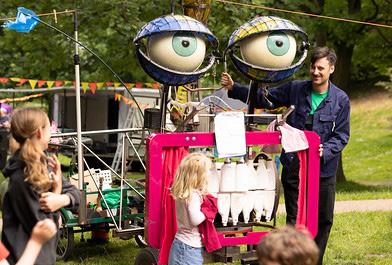


Office - Samuel Alexander Building, University of Manchester. Oxford Road, Manchester M13 9PL
Manchester Histories Hub - Lower Ground Floor, Manchester Central Library, St Peter’s Square, M2 5PD
Join our newsletter to keep up to date with our work via our website. www.manchesterhistories.co.uk / info@manchesterhistories.co.uk / 0161 306 1982
Company Number 08283259
Registered Charity 1151944
We are deeply grateful to our funders for their ongoing support and commitment. Their generosity and belief in our vision have been instrumental in enabling our work to grow and thrive. Without their backing, our work simply would not have been possible.
Thank you.
